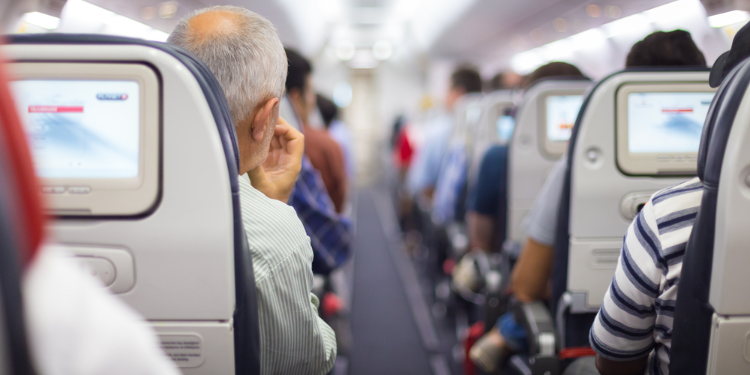
The rise in oil prices around the world is affecting all economies, starting with the transport sector. Pessimistic experts are forecasting an increase to 200 dollars per barrel by the end of the year, but this would be an unrealizable disaster scenario for others. Since the early days of the pandemic, airline companies have been warning of a possible rise in flight ticket prices. Repeated crises bear a cost that they cannot fully absorb. Unfortunately, consumers at the end of the supply chain have to take the brunt. How does all this affect moving abroad plans?
Crises drive up oil prices
The Covid pandemic somehow triggered the transport sector crisis. Add to that the war in Ukraine that is driving oil prices up week after week. In November 2021, the International Air Transport Association (IATA) had already warned of a significant rise in flight ticket prices for 2022. According to the IATA, airline companies have not been able to compensate for their losses despite government subsidies. Recent studies point out that Europe is not entirely dependent on petrol and energy sources from Russia. In the short term, oil and coal could be prefered to gasoline. Another crucial question is how African countries are dealing with this oil crisis? Markets are being cautious, faced with rising uncertainty.
It's worth noting that fuel accounts for 25% to 30% of the price of a ticket from a traditional company and up to 40% for a low-cost airline company. However, oil prices keep on rising. On March 24 and 25, it went up to a record of 120 dollars per barrel. Since then, prices have dropped to around 100 dollars a barrel, but the threat looms. Although some companies are still using their stock from 2021, they are already faced with the current additional costs. In the meantime, populations are facing the consequences. For example, between February 2021 and February 2022, tickets for flights departing from France rose by 7%. Elsewhere in Europe and the United States, a 12% price rise was recorded. Experts believe that these price rises will worsen over time, which definitely means an additional budget not only for moving abroad plans but also for expats.
Consequences of rising flight ticket prices
While rising oil prices are one of the factors accounting for the increase in ticket prices, we tend to underestimate other factors. For example, since the beginning of the war in Ukraine, the Ukrainian and Russian air corridors have been restricted. As a result, flight durations, especially for long haul trips, are now longer. For example, you can no longer pass through Russia for a flight from Paris to Tokyo. The detours increase the flight duration by 2 to 3 hours. Jean Collard, an expert in air transport, explained to the Belgian newspaper RTBF: "This implies hourly costs of 10,000 to 12,000 euros more for each aircraft".
Add to these costs that of labour. Extended flight durations require more pilots. "This means that three or four pilots might be needed instead of two", says Jean Collard. The cabin crew also need to be reinforced – which means more staff and more salaries. When all these costs are added to that of fuel, it naturally amounts to a near 30% price rise without considering inflation. While Ryanair chose not to increase flight ticket prices for the time being so as to avoid affecting traffic, the company made it clear that this position could be hard to maintain in the long run. Air France has already increased its prices by 40 euros in economy class and 100 euros in business class. Lufthansa also announced a price rise in the near future. However, Qatar Airlines and Emirates don't seem concerned since they get their stock from petroleum countries like Qatar and the United Arab Emirates.
How to escape rising oil prices when moving abroad?
According to new ecological strategies, airline companies must be more environment-conscious regarding fuel, materials, food and containers, etc. All these also affect flight ticket prices. However, clean energy comes with a cost, and so does the "zero-carbon" objective. Airline companies, therefore, have to think and look for solutions for building a greener economy. The European Union (EU) is also looking to achieve zero carbon by 2050 – with the first milestone by 2030. That would be a 55% decrease in carbon emissions. The "Fit for 55" strategy was published on July 14, 2021, integrating the European green pact voted in 2019. It is an ambitious plan amid the pandemic, inflation, and war in Ukraine. Still, environmentalists believe that these price rises will lead to a decline in air traffic.
People with moving abroad plans are left in limbo. Should they travel abroad or not, and should they rethink their budget? Of course, the most extreme reaction would be to avoid air travel and opt for intracontinental relocations. But there are many ways to escape rising flight prices that you have perhaps not considered, such as avoiding unnecessary travel, reducing shipments to the home country, etc. Travelling by train wherever possible is another way to cut expenses on flight ticket prices. Before the war in Ukraine, Paris-Tokyo car trips were another alternative for the most adventurous people.
Conclusion
In short, the flight ticket price rise has become a significant concern for expats and people with moving abroad plans. Price comparison websites are being sought after to find the best deals. Still, it is not recommended to buy your flight ticket long in advance since your departure is likely to be affected by external factors such as your employer's response, the visa application process, etc. Many factors add up to the uncertainty. But one thing is clear – more and more people are delaying their moving abroad plans. It could as well mean an opportunity to rethink and replan their future.



















